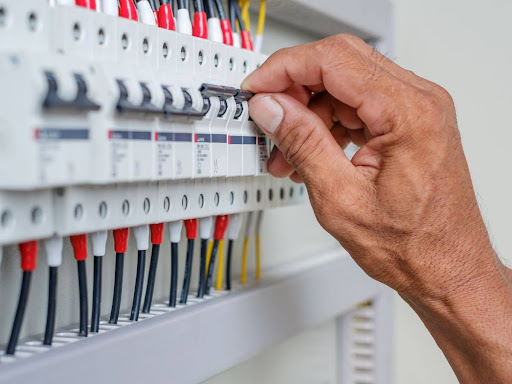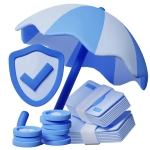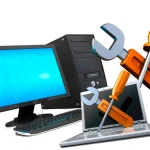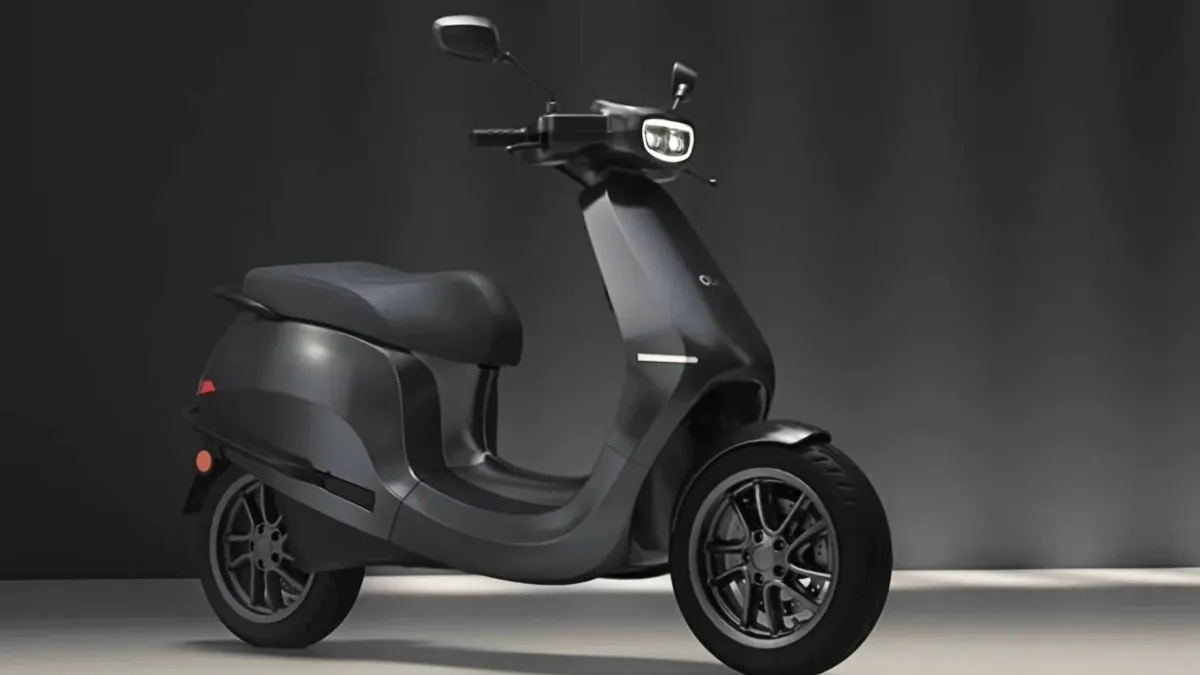
Have you ever heard this question?
“Can you help me find a better circuit breaker manufacturer?”
I have, dozens of times. Distributors call me again and again asking the same thing. They want a supplier who won’t wreck their profits. Someone who won’t disappear after the sale. Someone who actually stands by their products.
As someone who’s worked with manufacturers and B2B buyers for years, I know how valuable a solid list is. Alongside well-known global names like ABB and Schneider, I’ve also seen newer players like Radin Company from China step up with flexible breaker-based solutions and OEM support that smaller buyers really appreciate.
This article gives you exactly that.
In this guide, I’ll show you the top 7 circuit breaker manufacturers. I’ll explain what they offer, where they fit, and why they might be right for your business.
By the end, you’ll feel good about your choices and know exactly where to go next.
Let’s dive in!
Table of Contents
1. ABB
Established Date: 1988
Location: Zurich, Switzerland
Company Overview
ABB began after two major European companies, ASEA (Sweden) and BBC (Switzerland) merged. Since then, they’ve grown into one of the largest players in electrification and automation.
I first heard about ABB from a panel builder I worked with on a large public infrastructure job. He swore by their MCCBs because they rarely failed, even under constant load. Over time, I’ve come to see that consistency for myself. ABB works across many industries from energy and transport to marine and manufacturing. Their focus has always been clear: make power safer, smarter, and more reliable.
Product Range
- MCBs (Miniature Circuit Breakers): Used in homes and light commercial setups, these protect small circuits from short circuits and overloads. Great for basic, everyday electrical safety.
- MCCBs (Molded Case Circuit Breakers): Handle higher currents in industrial or commercial panels. They come with adjustable settings, so you can fine-tune protection.
- ACBs (Air Circuit Breakers): Built for high-power systems like factories or large buildings. They offer advanced protection and flexible trip settings.
- RCCBs (Residual Current Circuit Breakers): These break the circuit when they detect a current leak, helping protect people from electric shock.
- RCBOs (Residual Current Breaker with Overload): A two-in-one device combines short-circuit and leakage protection. Saves space and adds convenience.
- Smart Circuit Breakers: These track live electrical data and connect to monitoring systems. Ideal for smart buildings, data centers, and automated setups.
Key Strengths
- In-House Production: ABB makes most of its products in its own facilities, which helps keep quality consistent and defects low.
- Global Service Network: With presence in over 100 countries, you’ll find local support when you need spare parts or advice.
- Advanced Digital Features: Their smart breakers let you monitor current, heat, and faults in real time, very useful for avoiding downtime.
- Reliable Quality: ABB’s breakers have long service life and rarely fail under normal use. I’ve seen their MCCBs survive hot, dusty environments.
- Broad Product Variety: Whether you’re building a small panel or managing a substation, ABB likely has a breaker that fits.
Final Thoughts
ABB is a strong choice for quality circuit breakers with smart features and decades of proven reliability. However, they tend to be pricey, and smaller buyers might not get the same focus as big projects.
2. Schneider Electric
- Established Date: 1836
- Location: Rueil-Malmaison, France
Company Overview
I worked on wiring a control panel for a new facility. The lead engineer insisted on Schneider breakers, saying, “If I don’t want maintenance callbacks, I spec Schneider.” The project finished smoothly with no breaker problems.
Schneider Electric shifted its focus to energy management and automation. Today, it’s one of the most recognized brands for power systems in over 100 countries.
Their strength lies in combining electrical equipment with smart software. From circuit breakers to energy dashboards, Schneider makes it easier for businesses to monitor, protect, and optimize their power systems. They’re also known for pushing sustainability in manufacturing and product design.
Product Range
- Acti 9 Series (Miniature Circuit Breakers): Compact breakers designed for home and commercial use. They guard against overloads and short circuits and are built for quick installation and safe handling.
- Compact NSX (Molded Case Circuit Breakers): Ideal for industrial setups, these offer both protection and integrated energy metering. Good for keeping tabs on power usage while protecting circuits.
- MasterPact MTZ (Air Circuit Breakers): A high-performance ACB with smart connectivity. You can access real-time data and alarms remotely. Useful in large facilities or anywhere uptime is critical.
- PowerPacT Series: A solid, workhorse-style breaker. These are common in commercial buildings and small industrial setups where reliability matters more than bells and whistles.
- EasyPact CVS: A cost-effective breaker series that still meets IEC standards. Good for general-purpose use, especially when you need something dependable without overengineering it.
Key Strengths
- Global Presence: You’ll find Schneider’s support centers, reps, and distributors almost everywhere, which makes sourcing and servicing easier.
- Smart Breaker Tech: Their MasterPact and Compact lines offer real-time data, remote trip features, and cloud access, a step up for modern facilities.
- Sustainability Leadership: They’ve won multiple awards for green manufacturing and climate commitments. They’re serious about long-term environmental responsibility.
- Integrated Ecosystem: Their breakers work seamlessly with other Schneider components, making panel integration easier and reducing errors.
- Engineering Support: Their team is responsive when you need documentation, technical clarification, or help during commissioning.
Final Thoughts
Schneider Electric is ideal for businesses that want more than just protection, they want advanced control, data, and energy insights too. However, they have high MOQs, making smaller orders harder for modest projects.
3. Radin
- Established Date: 1992
- Location: No. 55 Punan 5th Rd, Economic Development Zone, Yueqing, Zhejiang, China
Company Overview
Radin, also known as RDN Controls, has been designing and manufacturing electrical control equipment since 2005. They’re a Chinese company with a strong focus on automatic transfer switches (ATS), breaker-based systems, and custom electrical controls for industrial and commercial applications.
Unlike larger multinational brands, Radin emphasizes custom builds and close client collaboration. This makes them especially appealing to panel builders, contractors, and integrators who need flexibility over off-the-shelf limitations.
Product Range
- Breaker-Based ATS (Automatic Transfer Switches): Radin’s core offering. These transfer switches use circuit breakers to switch between utility and generator power safely and automatically.
- Service Entrance Rated ATS: Integrated solutions where the ATS is the main disconnect. Saves time on permits and panel wiring in commercial jobs.
- Custom Control Panels: Built to spec for unique project demands. Includes PLCs (Programmable Logic Controllers), indicator logic, remote start control, and more.
- Bypass Isolation ATS Systems: These allow servicing without shutting down power, vital for healthcare, telecom, or data systems.
- Modular Power Distribution Units: Tailored for new energy and industrial setups. Often used in solar, battery storage, or EV charging infrastructure.
Key Strengths
- Customization at Its Core: Radin is known for building to order. Whether it’s a breaker brand preference or enclosure layout, they adapt fast.
- North American Standards Compliance: All gear meets CSA and UL standards. Ideal for code-compliant installations in Canada and the U.S.
- Fast Turnarounds: For many custom panels, Radin often delivers faster than major brands critical for retrofit or repair scenarios.
- Responsive Engineering Support: Small team, but deeply technical. You’re often talking directly to someone who worked on the design.
Final Thoughts
Radin is the best pick if you need flexibility, strong engineering, and quick delivery for projects where standard options just don’t fit. However, they don’t have the long history some global brands offer.
4. Siemens
- Established Date: 1847
- Location: Munich, Germany
Company Overview
Siemens started in 1847 and has grown into one of the most respected engineering companies in the world. With a presence in over 200 countries, their business covers everything from electrification and automation to digitalization and smart infrastructure.
They’re best known for combining solid industrial hardware with advanced monitoring tools giving you both protection and data. Siemens has always aimed to build systems that are future-ready but grounded in real-world use.
Product Range
- SENTRON 3VA Molded Case Circuit Breakers (MCCBs): These are built for safety and flexibility. They snap into panels easily and offer add-on modules like energy monitoring and communication ports.
- SIRIUS 3RV2 Motor Starter Protectors: These protect small motors from overloads and short circuits. Perfect for automated lines that can’t afford sudden stops.
- 3WL Air Circuit Breakers (ACBs): Designed for large installations like plants or data centers. They come with programmable trip units and remote communication options.
- Miniature Circuit Breakers (MCBs): These are reliable breakers for residential and small commercial use. They protect circuits from short circuits and overloads.
Key Strengths
- Innovative Technology: Siemens adds smart features that help you track performance and prevent failures before they happen.
- Global Support Network: With presence in over 200 countries, help is easy to find wherever you’re building or sourcing.
- Sustainable Practices: They follow strict environmental guidelines in product design and manufacturing. Good choice if your clients prioritize green building.
- Comprehensive Training Resources: Siemens offers online tools, manuals, and live training especially helpful if you’re integrating advanced units.
Final Thoughts
Siemens is the best pick for me if you need circuit protection that’s both dependable and future-ready, fitting traditional and smart systems alike. Just keep in mind, their product documentation can be dense for first-time users unless you’re already familiar with their ecosystem.
5. Eaton
- Established Date: 1911
- Location: Dublin, Ireland
Company Overview
Eaton has been around for over a century starting out in the U.S. before eventually becoming a global leader in power management. While many know Eaton for electrical gear, they also serve sectors like aerospace, vehicles, and mechanical systems. But when it comes to low-voltage power control, Eaton stands tall with a strong global footprint in more than 175 countries.
What makes Eaton different for me is their focus on energy efficiency. Their product lines often include smart solutions that help reduce energy waste without adding complexity.
Product Range
- BR Series (Residential Circuit Breakers): Affordable and easy to install. Great for standard home protection, including short circuit and overload defense.
- CH Series (Commercial Breakers): Offers high interrupt capacity and strong performance in light commercial buildings and small offices.
- Series G (Molded Case Circuit Breakers): Built for industrial use. These come with flexible mounting options and field-installable accessories, which save time during custom builds.
- PKE Motor-Protective Breakers: A smart pick for machine builders. These combine motor protection and circuit breaking in one compact body.
- VCP-W (Vacuum Circuit Breakers): A medium-voltage breaker with low maintenance needs. It’s well-suited for demanding, space-tight applications like mining and transportation panels.
Key Strengths
- Strong in Retrofit Work: Many Eaton breakers are designed to match existing panel footprints. That’s helpful when you’re updating old systems with minimal panel changes.
- Clear Engineering Documentation: Their install manuals and tech sheets are some of the most readable in the industry, big win for contractors working under pressure.
- Smart Design for Panel Builders: Features like field-mountable accessories and modular components make life easier when customizing.
- Energy-Efficient Features: Eaton integrates arc energy reduction and load-sensing features in many breakers. Saves energy without needing full smart systems.
- Reliable Mid-Range Pricing: Not the cheapest but more budget-friendly than high-end brands with similar capabilities.
Final Thoughts
Eaton is a strong choice if you’re balancing performance and price perfect for panels in logistics, commercial sites, or industrial upgrades. However, their product lines can be a bit scattered across regions. I’ve run into situations where a product available in the U.S. wasn’t easily sourced in Asia without a distributor delay.
6. Mitsubishi Electric
- Established Date: 1921
- Location: Tokyo, Japan
Company Overview
Mitsubishi Electric has grown into global leader in electrical and electronic equipment. With operations in over 40 countries, the company offers a wide range of products, including factory automation systems, air conditioning systems, and power distribution equipment. Their commitment to innovation and quality has made them a trusted name in various industries.
In my experience, Mitsubishi Electric’s circuit breakers are known for their reliability and durability. I recall a project where we needed compact breakers for a space-constrained control panel. Mitsubishi’s breakers fit perfectly, and their performance exceeded expectations.
Product Range
- Molded Case Circuit Breakers (MCCBs): Suitable for a wide range of applications, offering protection against overloads and short circuits.
- Air Circuit Breakers (ACBs): Designed for high-capacity systems, providing reliable protection and easy maintenance.
- Miniature Circuit Breakers (MCBs): Ideal for residential and commercial applications, ensuring safety in low-voltage circuits.
- Earth Leakage Circuit Breakers (ELCBs): Offer protection against earth faults, enhancing safety in electrical installations.
- Circuit Breakers for DC Circuits: Specifically designed for photovoltaic systems, handling up to 1000VDC.
Key Strengths
- Compact Design: Mitsubishi Electric’s breakers are designed to save space without compromising performance.
- Global Standards Compliance: Their products meet various international standards, ensuring compatibility and safety.
- Wide Product Range: Offers solutions for diverse applications, from residential to industrial settings.
- Reliable Performance: Known for durability and consistent operation in demanding environments.
Final Thoughts
Mitsubishi Electric is a solid choice if you need reliable, compact solutions with a wide product range that meets international standards. However, their website isn’t always updated, so it’s best to double-check specs and availability with local distributors.
7. Fuji Electric
- Established Date: 1923
- Location: Tokyo, Japan
Company Overview
I’ve been following Fuji Electric for a while now. They’ve been building power and energy systems since the 1920s, so they really know their stuff. Over the years, they’ve earned a solid reputation for making precision-engineered electrical components and putting energy efficiency front and center.
They operate across more than 100 countries and are heavily involved in factory automation, power electronics, and renewable energy systems. Their low-voltage products, including circuit breakers, are used in everything from transport infrastructure to machine tools.
Product Range
- Molded Case Circuit Breakers (MCCBs): Built for small- to medium-scale systems, these provide protection from overloads and short circuits. Their modular layout works well in tight enclosures.
- Miniature Circuit Breakers (MCBs): A staple in residential and light commercial panels. Quick to install and built with high break capacity.
- Air Circuit Breakers (ACBs): These handle higher loads, often seen in manufacturing or utility distribution boards. Fuji’s ACBs are designed for stability and low maintenance.
- Earth Leakage Circuit Breakers (ELCBs): These detect current leaking to ground, an essential safety feature in areas prone to moisture or wiring faults.
- DC Circuit Breakers: Tailored for solar and battery storage systems, these handle high-voltage direct current with stable protection.
Key Strengths
- Built for Tight Spaces: Their compact form factor is a great fit for small panels, OEM machines, and modular cabinets.
- Longevity in Harsh Environments: Fuji breakers hold up well in environments with heat, dust, or vibration, ideal for industrial workshops.
- Consistent Supply Chain: Their distribution network, especially in Asia, makes sourcing relatively smooth and predictable.
- Strong in OEM Integration: They’re a favorite among machine builders looking for cost-efficient, high-performance protection in automated setups.
Final Thoughts
Fuji Electric is best if you need breakers that deliver stable, dependable protection without fuss, the kind you install and forget. Just keep in mind, if you’re outside Asia, sourcing specific models or niche specs can be more challenging.
Conclusion
Finding the right breaker shouldn’t feel like chasing a ghost.
Now, you have seven names that deliver and a clear sense of where each one shines.
I’ve worked on panels where Radin was the only one who said, “Yes, we can do that.” And they did.
RELATED ARTICLES
Latest Articles
 People Over Papers: Protecting Immigrant…In General
People Over Papers: Protecting Immigrant…In General Budget Vs. Quality: Comparing Pre-school…In Business
Budget Vs. Quality: Comparing Pre-school…In Business Instagram IP Address Blocked: How Long I…In Technology
Instagram IP Address Blocked: How Long I…In Technology Fast, compliant global background screen…In Tech Startups
Fast, compliant global background screen…In Tech Startups Balancing Investment and Protection with…In Insurance
Balancing Investment and Protection with…In Insurance Japan Tour Packages for Travellers Who W…In Tips
Japan Tour Packages for Travellers Who W…In Tips Getting What You Need: Align Your Action…In General
Getting What You Need: Align Your Action…In General Preventing Dust Damage With Proper Lapto…In Gadgets
Preventing Dust Damage With Proper Lapto…In Gadgets



